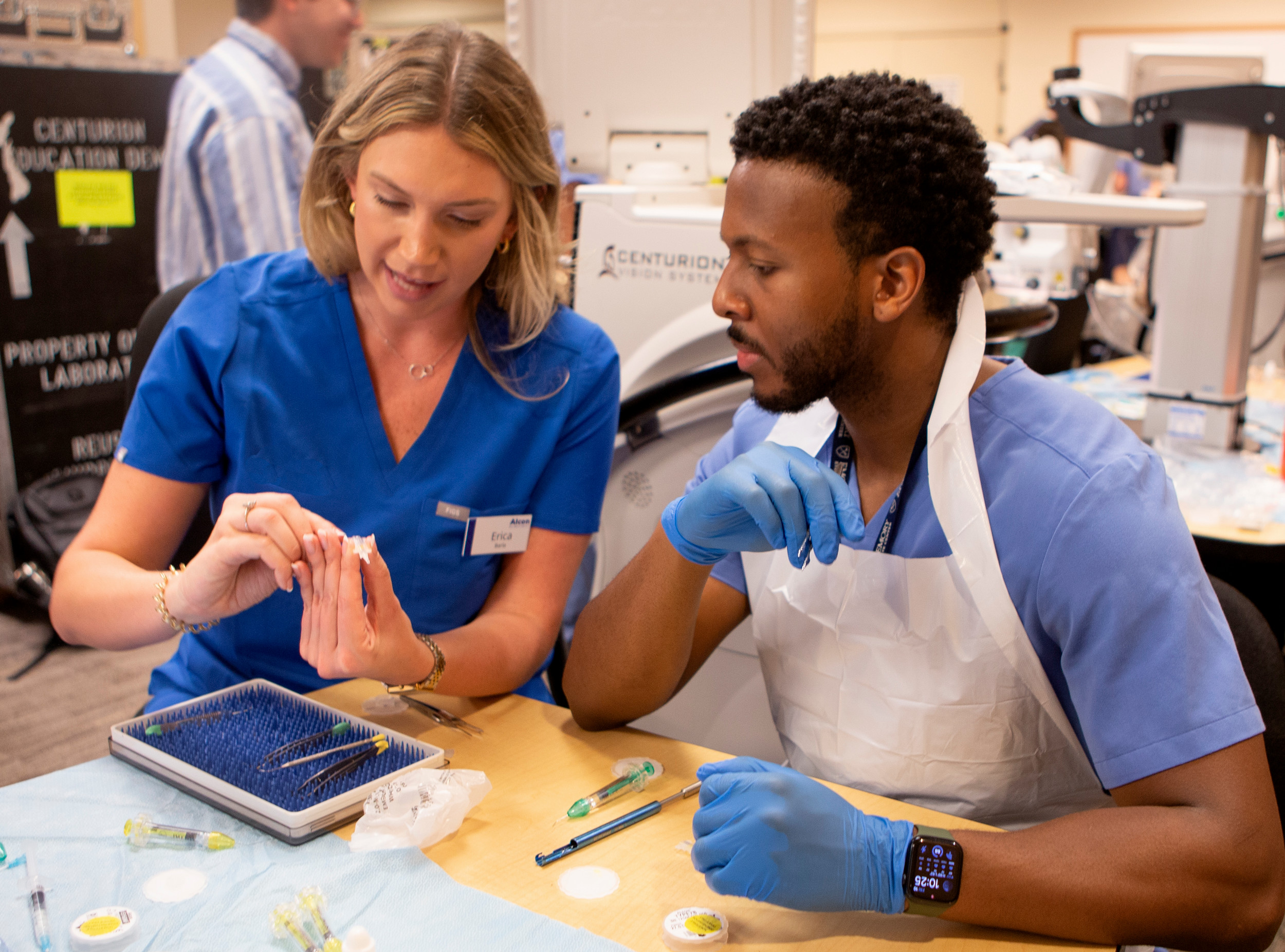Residents are an integral part of our team
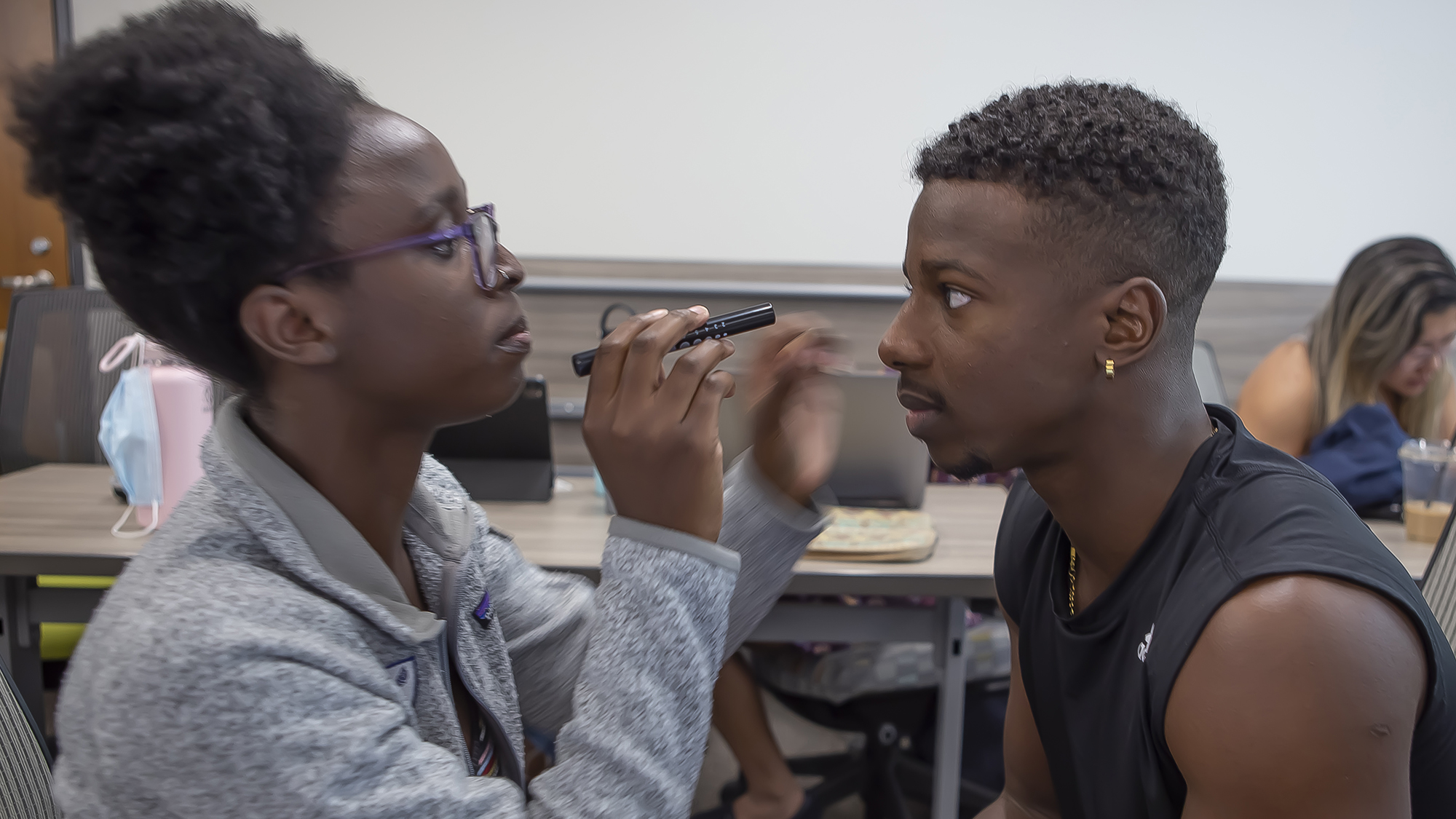
Program Year 1
The first year of the ophthalmology residency training is known as the internship year, (or PGY1), hence this residency cohort is called interns. The first-year is coordinated through the Emory School of Medicine. This ACGME-accredited, transitional program introduces medical school graduates to a foundation of core internal medicine principles that they will build upon as practicing physicians during the remainder of their residency at Emory, including a three months of ophthalmology and research elective.
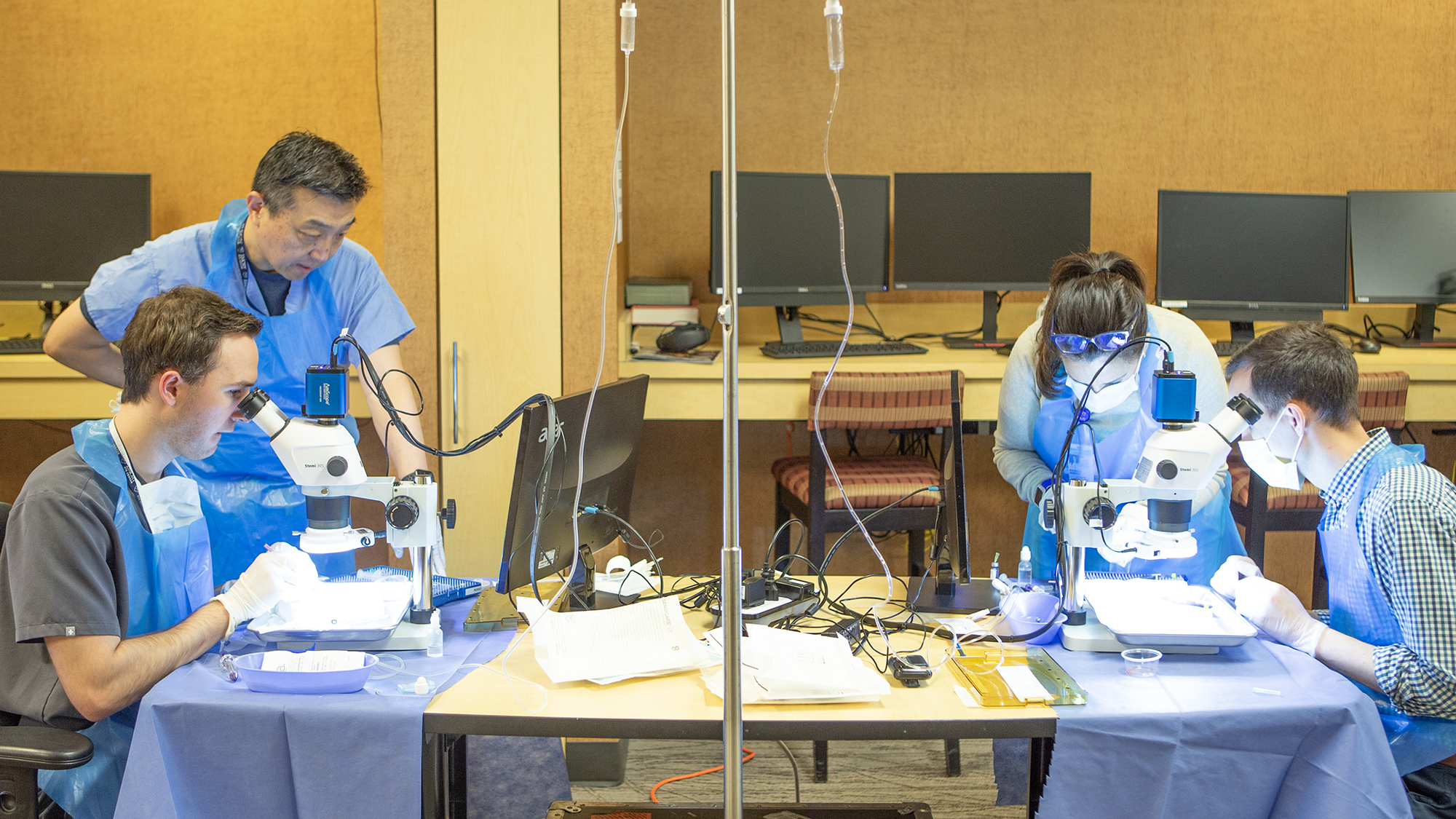
Program Year 2
Second-year residents (PGY2) participate in clinical rotations in comprehensive ophthalmology, retina, uveitis, glaucoma, cornea, neuro-ophhthalmology, and oculo-plastics at the Emory Eye Clinic, Emory University Midtown, Grady Memorial Hospital, and the VA.
Procedures include enucleations, chalazion excisions, YAG capsulotomies, Laser Iridotomies, Cyclo Photo Coagulation, temporal artery biopsies and intravitreal injections. A third-year resident will serve as back-up for the first year on call. Overnight call will be every 5th night/5th weekend during the first half of the PGY-2 year; during the second half of the year, PGY2 residents take call via a night float system.
Procedures include enucleations, chalazion excisions, YAG capsulotomies, Laser Iridotomies, Cyclo Photo Coagulation, temporal artery biopsies and intravitreal injections. A third-year resident will serve as back-up for the first year on call. Overnight call will be every 5th night/5th weekend during the first half of the PGY-2 year; during the second half of the year, PGY2 residents take call via a night float system.
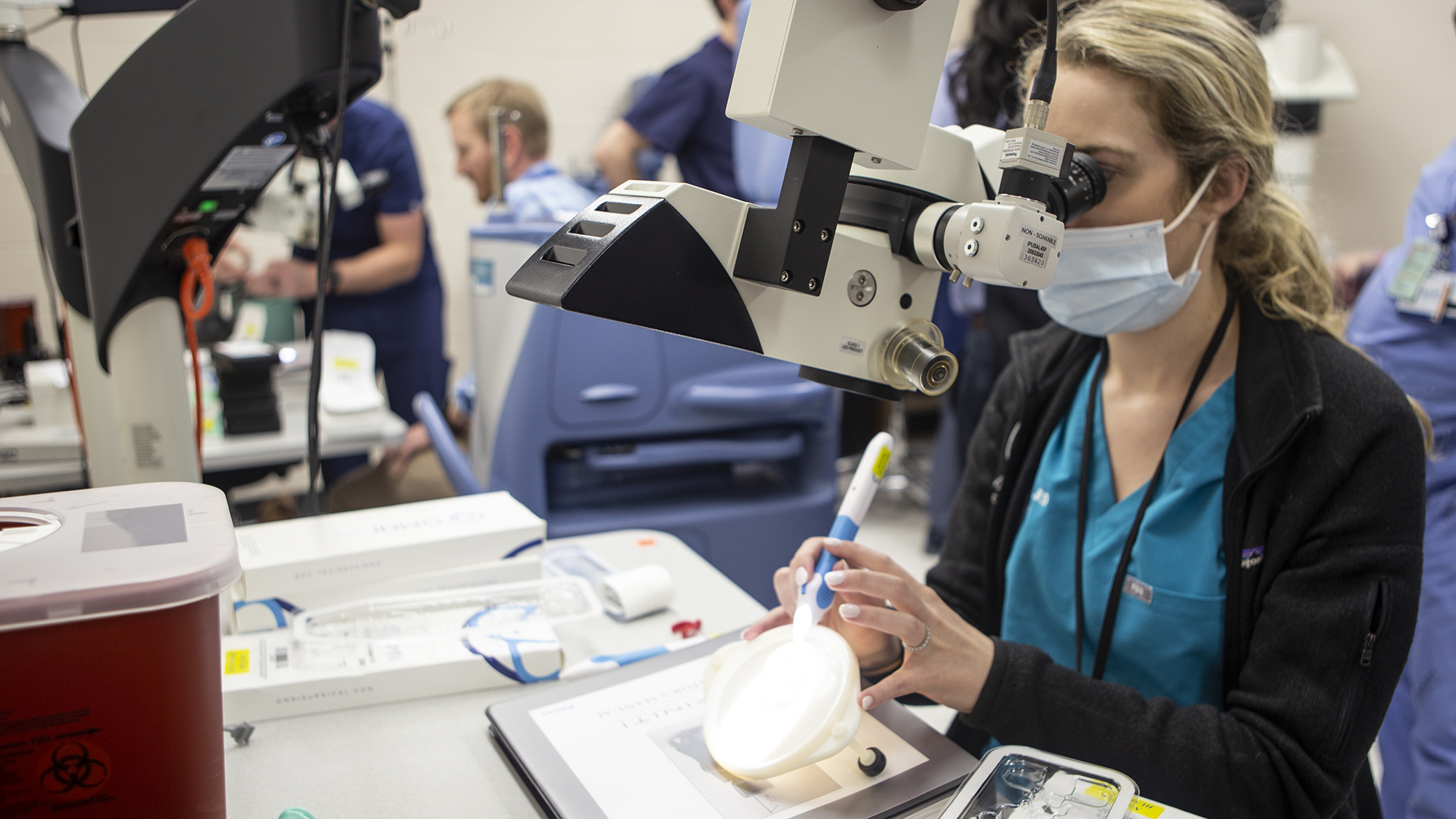
Program Year 3
Third-year residents (PGY3) will be lead our residents at the Atlanta VA and Grady Memorial Hospitals. They also gain additional subspecialty experience in neuro-ophthalmology, retina, uveities, cornea, oculo-plastics, oculor-oncology, pathology, and pediatric ophthalmology.
Residents will be involved in cataracts, strabismus, focal lasers, selective laser trabeculoplasty (SLT), panretinal photocoagulation (PRP) laser, and open globes. They will have the opportunity to take the Harvard Medical School Intensive Cataract Surgical Training Course.
PGY-3s will take call via a night float system at the Emory University Hospital and Children’s Hospital locations.
Residents will be involved in cataracts, strabismus, focal lasers, selective laser trabeculoplasty (SLT), panretinal photocoagulation (PRP) laser, and open globes. They will have the opportunity to take the Harvard Medical School Intensive Cataract Surgical Training Course.
PGY-3s will take call via a night float system at the Emory University Hospital and Children’s Hospital locations.
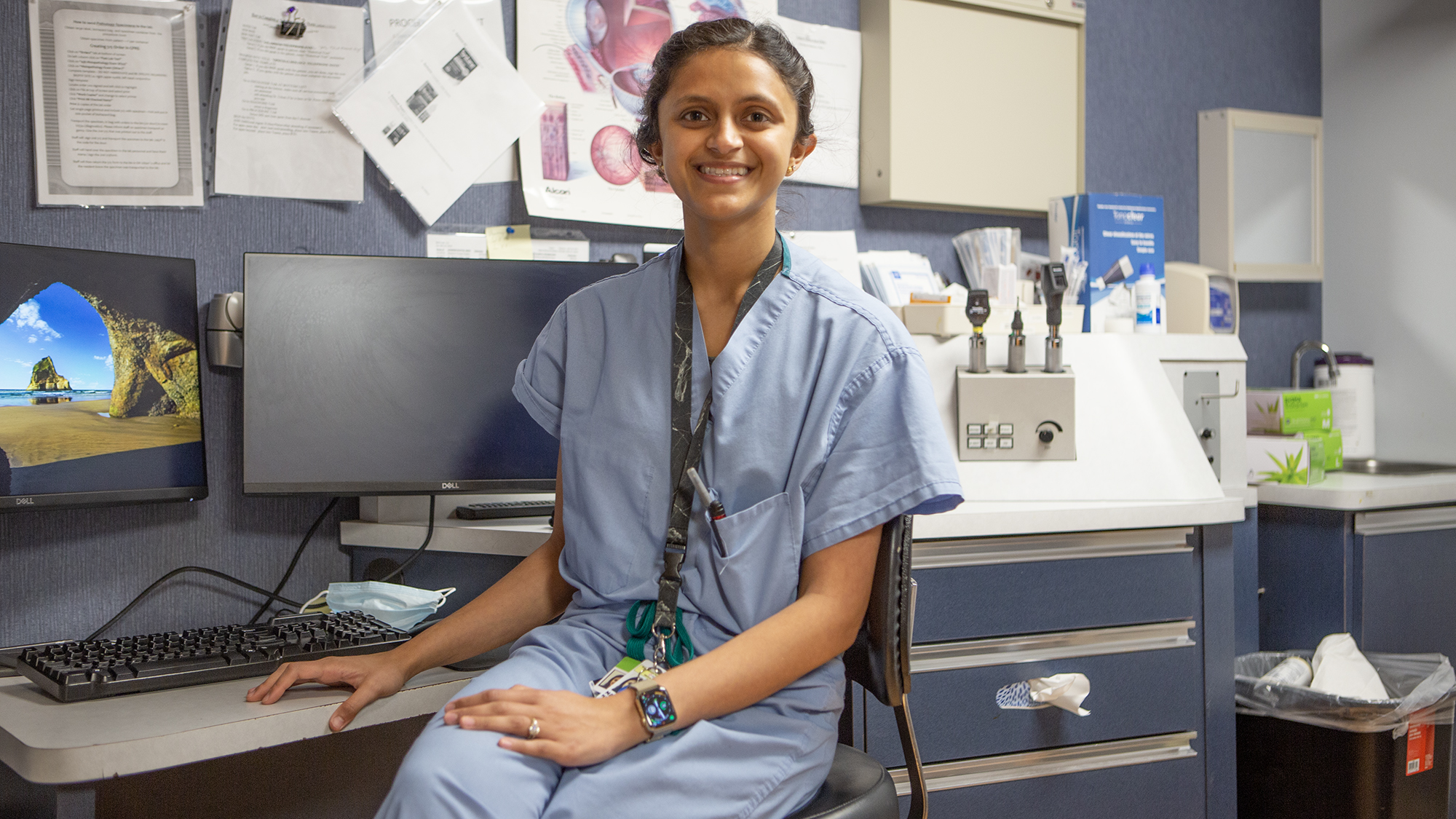
Program Year 4
Fourth-year residents (PGY4) routinely assume the role of primary surgeon during their clinical rotations. They serve as mentors for their junior residents and take back up call for PGY2 residents.
Their on-call schedule is every sixth weeknight and every sixth weekend. They are given dedicated time to conduct ophthalmic research that is presented before their peers at an Emory Eye Center lecture or at a professional conference. All fourth-years attend the American Academy of Ophthalmology (AAO) annual meeting and receive time off to attend job or fellowship interviews.
Their on-call schedule is every sixth weeknight and every sixth weekend. They are given dedicated time to conduct ophthalmic research that is presented before their peers at an Emory Eye Center lecture or at a professional conference. All fourth-years attend the American Academy of Ophthalmology (AAO) annual meeting and receive time off to attend job or fellowship interviews.


